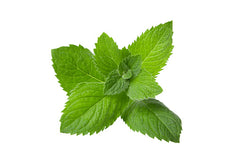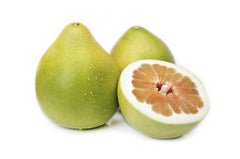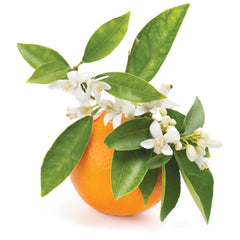What Does Bergamot Smell Like?
Click For Affordable Inspired Perfume Alternatives

Embark on a fragrant journey to the sun-soaked orchards of Southern Italy and discover the enchanting aroma of bergamot. Hailing from the citrus family, bergamot boasts a distinctive fragrance that captures the essence of Mediterranean groves. Join us as we explore the question: What does bergamot smell like?
What Does Bergamot Smell Like?
The fragrance of bergamot is a symphony of citrusy brightness with a sophisticated floral undertone. Picture the lively aroma of ripe oranges combined with a hint of floral and a touch of herbal freshness. Bergamot's scent is a celebration of the citrus family, offering a refreshing and complex olfactory experience.
Bergamot's Citrus Radiance: A Mediterranean Sunrise
As you approach bergamot, the first olfactory impression is a burst of citrus radiance, reminiscent of a sunrise over a Mediterranean orchard. Imagine the sweet tanginess of oranges and the crispness of lemons seamlessly blended. Bergamot's fragrance is a celebration of citrus brilliance, instantly transporting you to a sun-drenched paradise with its lively and invigorating character.
Zesty Elegance: A Citrus Waltz
The scent of bergamot is an elegant waltz of zestiness. It captures the lively and effervescent essence of citrus, akin to a dance of citrus notes on a Mediterranean breeze. The aroma is a testament to the zestiness of bergamot, creating a refreshing and invigorating olfactory experience that echoes the vibrancy of sunlit landscapes.
Floral Harmony: Mediterranean Citrus Blossoms
While predominantly zesty, bergamot's scent carries a subtle floral harmony. The delicate floral notes add depth to the fragrance, creating a well-balanced composition that is both lively and subtly elegant. Bergamot's aroma is a delightful interplay of zestiness and floral nuances, reminiscent of blooming citrus orchards in perfect harmony.
Herbal Freshness: Essence of Bergamot Peel
Delve deeper into the scent, and you may notice an herbal freshness that characterizes bergamot's fragrance. It's as if the aroma carries the essence of freshly peeled bergamot, creating a rejuvenating and invigorating olfactory experience.
Bergamot's Mediterranean Symphony
Hence, bergamot's fragrance is a Mediterranean symphony of radiance, elegance, floral harmony, and herbal freshness. It stands as a testament to the lively and vibrant qualities of this citrus gem, offering a sensory experience that is both refreshing and sophisticated. Bergamot, with its invigorating and complex aroma, invites us to savor the Mediterranean notes found within its peel, a fragrant journey that unfolds with every delightful whiff.
Factors Influencing the Scent of Bergamot Essential Oil
Bergamot essential oil is a carefully crafted composition designed to capture the bright and citrusy aroma of Citrus bergamia. The formulation of this essential oil involves a thoughtful combination of aromatic compounds. Here are several factors that contribute to the vibrant and sophisticated scent of Bergamot essential oil:
-
Fragrance Composition: Bergamot essential oil is a meticulously blended mixture of various aromatic compounds, chosen to replicate the characteristic scent of bergamot. This composition may include both synthetic and natural ingredients to achieve the desired olfactory profile.
-
Citrus Essence: At the heart of the essential oil lies the essence of bergamot. Notes of zesty citrus, with a perfect balance of sweetness and tartness, are intricately blended to mirror the refreshing and invigorating aroma of bergamot.
-
Synthetic vs. Natural Components: Bergamot essential oil often combines both synthetic and natural ingredients. Perfumers make choices to strike a balance between authenticity, cost considerations, and sustainability in the selection of these components.
-
Extraction Method: The method used to create Bergamot essential oil, whether through cold pressing or extraction, plays a crucial role in defining the aromatic profile. Specific extraction methods contribute to the faithful recreation of the fresh and citrusy scent.
-
Additional Citrus and Herbal Notes in the Blend: The essential oil may incorporate additional citrus elements or subtle herbal notes to enhance complexity. These complementary notes contribute to the overall vibrancy of the scent, capturing the essence of bergamot.
-
Quality of Ingredients: The quality of raw materials, including the source of essential components, directly influences the freshness and authenticity of the bergamot scent in the essential oil.
-
Perfumer's Artistry: The expertise and creativity of the perfumer or essential oil creator are crucial. Perfumers leverage their skills to balance different components, creating a distinctive and delightful bergamot fragrance.
-
Regulatory Compliance: Adherence to regulatory standards and restrictions on certain essential oil ingredients is crucial. Compliance with safety guidelines requires careful consideration of ingredient choices to ensure the essential oil is safe for use.
-
Usage in Products: Bergamot essential oil can be incorporated into various products, including perfumes, candles, room sprays, and bath products. The interaction with other ingredients in specific product formulations can influence how the bergamot scent is perceived.
-
Product Type and Concentration: The concentration of Bergamot essential oil in a product affects the strength and longevity of the scent. Higher concentrations may be suitable for perfumes, while lower concentrations work well for candles, soaps, or room sprays.
-
Storage Conditions: Proper storage conditions for Bergamot essential oil, both before and after formulation, are essential to maintain its stability and scent. Storing it in a cool, dark environment helps preserve the freshness of the essential oil.
-
Consumer Preferences and Trends: Formulations of Bergamot essential oil may adapt to changing consumer preferences and market trends. The popularity of citrus scents or unique blends may influence product formulations.
-
Artisanal vs. Commercial Production: Differences between artisanal and commercial production of Bergamot essential oil may impact ingredient sourcing, formulation, and overall quality. Artisanal methods may emphasize craftsmanship and unique blends.
-
Post-Formulation Processing: Additional processes, such as aging or filtering after the formulation of the essential oil, may influence the final scent and contribute to the desired characteristics.
-
Exploring Different Formulations: Exploring different formulations of Bergamot essential oil allows consumers to experience a range of fresh and citrusy scents reminiscent of the delightful bergamot fruit. Individual preferences play a significant role in selecting the perfect Bergamot essential oil for various applications.
What to Look for When Choosing Bergamot Essential Oil
Selecting a bergamot essential oil allows you to enjoy the bright and citrusy aroma of bergamot. Whether used in perfumes, candles, diffusers, or personal care products, consider these factors to ensure you choose a high-quality and authentic bergamot essential oil:
-
Citrus Authenticity: Seek a bergamot essential oil that authentically captures the fresh, zesty, and tangy scent of real bergamot. Look for an essential oil that embodies the unique citrus notes characteristic of quality bergamot.
-
Natural vs. Synthetic: Determine whether the essential oil is derived from natural sources or is synthetically produced. Natural bergamot oils can provide a more nuanced and realistic scent, closely resembling the aroma of actual bergamot.
-
Blend Ingredients: Check the blend of ingredients in the essential oil. A well-crafted combination of natural and synthetic components can contribute to a balanced and long-lasting bergamot fragrance.
-
Intensity Level: Consider the intensity level of the bergamot essential oil. Some may prefer a subtle and refreshing scent, while others may desire a more pronounced and invigorating aroma. Look for an essential oil that aligns with your desired level of intensity.
-
Versatility: Choose an essential oil that is versatile and suitable for various applications. Whether used in perfumes, candles, lotions, or diffusers, versatility allows you to enjoy the citrusy scent in different settings.
-
Packaging: Assess the packaging of the essential oil. Opt for a bottle that is dark or opaque to protect the oil from light exposure, preserving its freshness and preventing deterioration over time.
-
No Residue or Discoloration: Ensure that the bergamot essential oil leaves no residue or discoloration when incorporated into different products. A high-quality oil should seamlessly integrate into various mediums without causing unwanted effects.
-
Manufacturer Reputation: Research the reputation of the manufacturer or brand. Choose well-established brands with positive reviews, as they are more likely to produce reliable and high-quality essential oils.
-
Testing Options: Look for essential oils that offer testing options or sample sizes. This allows you to experience the scent firsthand before committing to a larger quantity, ensuring it aligns with your preferences.
-
Ethical and Sustainable Practices: Consider the manufacturer's commitment to ethical and sustainable practices. Brands that prioritize responsible sourcing and environmentally friendly production contribute to a more conscientious choice.
By considering these factors, you'll be better equipped to choose a bergamot essential oil that not only aligns with your preferences but also ensures a high-quality and uplifting olfactory experience in your chosen applications.
Where to Find Reputable Bergamot Essential Oils
-
Specialty Candle and Soap Supply Stores: Explore specialty stores dedicated to candle-making and soap supplies, as they often carry a variety of essential oils, including unique scents like bergamot. These stores may offer options suitable for crafting candles, soaps, and other scented products.
-
Online Essential Oil Retailers: Browse reputable online platforms specializing in essential oils. Websites and retailers dedicated to aromatherapy, candle making, or DIY crafting may have an extensive selection of bergamot essential oils. Check product descriptions and customer reviews for authenticity and quality.
-
Artisanal or Handmade Markets: Attend artisanal markets or craft fairs where independent sellers showcase handmade products. Artisan vendors may create unique and carefully crafted bergamot essential oils, providing an opportunity to explore distinct options.
-
Local Essential Oil or Perfume Shops: Specialty shops focusing on essential oils or perfumes may carry bergamot essential oils. These stores often prioritize high-quality scents and may offer a range of unique and citrusy aromas.
-
Online Marketplaces: Platforms like Etsy or other online marketplaces featuring handmade or artisanal products can be sources for bergamot essential oils. Look for sellers with positive reviews and detailed information about their products.
-
Aromatherapy Stores: Aromatherapy stores often carry a variety of essential oils for different applications. Inquire about the availability of bergamot scents to add a citrusy and refreshing aroma to your living space.
-
Local Farmers' Markets or Herbal Shops: Check with local farmers' markets or herbal shops that specialize in natural products. Some of these establishments may offer essential oils with botanical scents, including bergamot.
-
Specialty Perfume Retailers: Explore specialty perfume shops that focus on unique and exotic fragrances. These stores may carry bergamot essential oils known for their distinctive and sophisticated citrus notes.
-
Word of Mouth: Seek recommendations from friends, family, or members of fragrance communities for trusted sources of bergamot essential oils. Personal experiences and suggestions can guide you to reputable suppliers known for quality and authenticity.
-
Check Ingredients and Descriptions: Before making a purchase, carefully read product descriptions and check ingredient lists for bergamot essential oils. Authentic and reputable sellers provide clear information about the composition and intended use of their products.
Note: Bergamot essential oils can bring a citrusy and sophisticated note to your DIY projects. Ensure that the essential oil you choose aligns with your intended use, whether it's for perfumes, candles, diffusers, or other creative endeavors. Follow safety guidelines provided by the manufacturer for proper usage.
20 Questions and Answers about Bergamot:
-
What is bergamot? Bergamot is a citrus fruit primarily grown in southern Italy. It is known for its distinctive fragrance and is a key ingredient in many perfumes.
-
How is bergamot used in perfumes? Bergamot oil, extracted from the fruit's peel, is a common top note in perfumes. Its fresh, citrusy scent adds a bright and uplifting quality to fragrances.
-
What type of fragrance category does bergamot often belong to? Bergamot is frequently found in citrus, fresh, and aromatic fragrances. It is a popular choice for top notes in both men's and women's perfumes.
-
Does bergamot have any medicinal properties in addition to its fragrance? Bergamot oil is believed to have certain medicinal properties, including being antibacterial and anti-inflammatory. However, it's important to use it cautiously and follow safety guidelines.
-
Can bergamot oil cause skin irritation? Bergamot oil contains compounds that can make the skin more sensitive to sunlight, potentially causing irritation. Perfumes with bergamot are usually applied to clothing rather than directly on the skin to mitigate this risk.
-
What other notes complement bergamot in perfumes? Common complementary notes include floral scents like jasmine and rose, as well as other citrus notes such as lemon and orange.
-
Is bergamot used more in men's or women's perfumes? Bergamot is versatile and can be found in both men's and women's fragrances. Its fresh and crisp aroma makes it suitable for a wide range of scents.
-
How does bergamot contribute to the overall perfume composition? As a top note, bergamot provides the initial burst of fragrance when a perfume is applied. It's often used to create a bright and invigorating opening.
-
Can bergamot be blended with heavier scents? Yes, bergamot is often blended with heavier base notes like patchouli, vetiver, or musk to create a balanced and long-lasting fragrance.
-
Is bergamot commonly used in niche or designer perfumes? Bergamot is used in perfumes across a spectrum of brands, from niche and artisanal to mainstream designer fragrances.
-
Does the quality of bergamot oil vary? Yes, the quality of bergamot oil can vary based on factors such as where it is sourced and how it is extracted. Higher quality oils are often used in premium perfumes.
-
Can bergamot be found in other scented products besides perfumes? Yes, bergamot is used in various scented products, including candles, soaps, and body lotions, due to its pleasant fragrance.
-
Is bergamot used in combination with other citruses in perfumery? Bergamot is sometimes combined with other citrus notes like lemon, lime, and orange to create complex and layered citrus fragrances.
-
Is there a specific season when bergamot fragrances are more popular? Bergamot's fresh and lively aroma makes it popular in spring and summer fragrances, although it can be found in perfumes for any season.
-
Are there any cultural or historical associations with bergamot in perfumery? Bergamot has a long history in perfumery and is associated with the Mediterranean region. It has been used in traditional colognes and perfumes for centuries.
-
Can bergamot be synthetically reproduced in perfumery? Yes, synthetic bergamot oil is often used in perfumery. It provides consistency in fragrance compositions and reduces the risk of skin sensitization.
-
Does bergamot have a calming or energizing effect in perfumes? Bergamot is often associated with uplifting and energizing effects, making it a common choice in perfumes designed to boost mood and vitality.
-
Are there any famous perfumes that prominently feature bergamot? Several iconic perfumes feature bergamot, including Chanel No. 5, Calvin Klein CK One, and Acqua di Parma Colonia.
-
Can bergamot be blended with gourmand notes in perfumes? Yes, bergamot can be combined with gourmand notes like vanilla or tonka bean to add a sweet and edible quality to a fragrance.
-
How should one store perfumes containing bergamot to preserve their fragrance? Perfumes, especially those with bergamot, should be stored in a cool, dark place away from direct sunlight and temperature fluctuations to maintain their fragrance integrity over time.
Buy Perfumes - Best Online Retailers
Click For Affordable Inspired Perfume Alternatives
Click For The Best Niche Perfumes & Decants
Pheromone Perfumes - Confidence, Attraction & Appeal - Click For More
Home Fragrances & Candle Warmers - Click To Scent Up Your Spaces Today!



